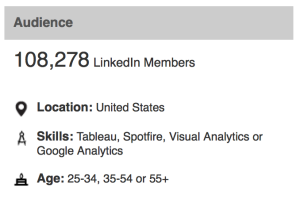— February 19, 2019
Most big businesses today are heavily invested in digital technology. Senior Vice President Tom Goodwin, Havas Media, aptly describes the direction big businesses are moving towards:
Uber, the world’s largest taxi company, owns no vehicles. Facebook, the most popular media owner, creates no content. Alibaba, the most valuable retailer, has no inventory. And Airbnb, the largest accommodation provider, owns no real estate.
These industries generate hundreds of billions of dollars in revenue every year, yet they have little to no assets. Will businesses take the same approach with their employees? No one knows how employment will change in the coming years; although, we do know these types of businesses have effectively disrupted long-standing traditional business models. Collaborative, sharing, or gig economy based businesses have built the road to a new paradigm where businesses operate by attracting freelance entrepreneurs.

The Gig Economy is Already Here
Conditions surrounding economies are constantly subject to change. With the increased incorporation of digital business technologies, the economic landscape, in part, has transitioned from a static, long-term employment focused model to a newer short-term, contract-based one.
According to a study conducted by the McKinsey Global Institute, 150 million workers in North America and Western Europe are working outside the confines of a conventional full-time job. McKinsey finds the, “on-demand economy,” is becoming the new trend for employment. In this type of economy, an independent workforce can partake in contractual work instead of traditional work.
Independent workers can find work through evolving digital platforms, which propose a work-for-hire recruitment model. On these platforms, freelancers are able to create profiles, allowing them to market their services for a rate based either per hour or per contract. As these digital marketplaces grow further, more and more professionals are becoming attracted to freelancing.
The transition to a gig economy is happening faster than you might think. As stated by Randstad Canada, 20-30 per cent of the Canadian workforce, when taking into consideration freelancers, consultants, contractors, and contingent workers, already encompass “non-traditional workers.” It’s only going to trend upwards from there, with 85 per cent of surveyed companies expecting to move to an agile workforce in the next decade.
In the United States, PricewaterhouseCoopers saw 53 per cent of all surveyed workers answered they expected to be self-employed in the next 5 years.
You might expect this trend to be happening among lower-level employees; however, you’d be wrong. Senior executives are being placed into smaller companies for interim work in order to share their experience and help provide wisdom to owners seeking to grow their business. Once this type of work becomes more attractive on a large-scale, recruiters will be able to market high-level talent to businesses in the management consultancy space.
The arrival of the gig economy is in new technological innovation helping to connect businesses to key specialists, helping them at key stages in their business’ development. Brushfield states short-term freelance work isn’t uncommon; however, the way we are conducting it now through technology is. With the help of new applications, buyers, sellers, and service providers can directly connect via online marketplaces.
Tech or creative industries are most prone to freelance work because of the need for high level specializations among its labour force; therefore, they are sought after most often.
Do I Hire Freelance or Full-time?

There are two major types of gig economy workers: independent contractors and contingent workers. Independents comprise those who consider themselves to be their own boss; whereas, contingents are contractually obligated to work for a company, similar to regular full-time employees, without the security and benefits that come along with full-time employment.
Both of these types of freelancers equal to about 36 per cent of the US economy. Gallup reports alternative work arrangements are becoming more common forms of employment, where 49 per cent of part-time workers and 24 per cent of full-time workers have a second gig. Surprisingly, people with alternative working arrangements as their primary job total close to 29 per cent of the US economy.
Understanding the difference between being an independent or contingent worker comes down to whether you feel you are your own boss. Although, it seems like most of us would be happier to be independent than contingent, the contingent workers are, on average, happier than regular full-time workers.
Due to the flexibility of working on your schedule, contingent workers agreed they had a strong sense of freedom with their jobs; where 39 per cent of contingent freelancers agreed to this statement, only 27 per cent of standard workers agreed.
Choosing between independents, contingents or full-time workers comes down understanding your business needs and how developed it is.
Why the Gig Economy Matters
Gig workers or freelancers are largely independents. There are a few possible explanations as to why most freelancers are independently employed.
For instance, after the United States experienced its most recent recession, resulting in the loss of thousands of jobs, more people became motivated to seek the benefits of self-employment.
This trend, coupled with the rise of smartphones and more advanced mobile applications, created the climate for gig economy based businesses to develop.
With popular inventions such as Uber, large investment firms and banks began to see potential markets for gig economy based businesses. Gig economy focused digital marketplaces grew in the same way to facilitate the need for recruiting services. This created demand for freelancers who were operating either independently or contingently.
Small businesses could now select and contract talent who best fit their employment criteria without having to invest large amounts of resources. Some businesses don’t have the budget to hire full-time employees, yet need help in growing their business. This offers businesses more freedom to compete.
Freelancers aim to provide goods and or services within their specialties to businesses for short-term work. Because of the nature of their contracts, one can see that these freelancers are actually micro-entrepreneurs – they respond to local conditions of the economy and try to fill a particular niche.
Do Freelancers Have Employment Rights?

One can argue employment terms among big businesses are mirroring what is being seen among gig workers. Work in these organizations is being restructured in that employers are straying from traditional long-term employment contracts and moving towards short-term arrangements. Albeit, no business is without its problems.
With the most recent decision on the legal battle between Uber and its drivers ruling in favour of its drivers, it’s hopeful most contractual arrangements allow for social protections to remain in place.
As for regulatory transitions, this will inevitably see a lot of debates whether or not there should be some type of protection in place for freelancers working under businesses in gig economy markets.
4 Connections You Need to Freelance Successfully
In working a freelance job, there are hard costs you endure that you may be unaware of. Because the completion of the job rests solely with you, without support form others in your immediate vicinity, you must be disciplined without help from an atmosphere a traditional work setting instills.
A lack of discipline is a common feeling among freelancers, and all humans; however, when freelancers lack discipline and their productivity drops, they feel the devastation of the impact. This is due to the proposition that their value is tied to their productivity.
When you feel like you need to increase your productivity, establish connections to your surroundings, people, routines and purpose.
Surroundings
Putting some careful thought into choosing your work environment as a freelancer could drastically improve your productivity. The term for this idea is called a, “holding environment.” In it, you are provided with a physical and psychological space for your work to be conducted. This can be anywhere you feel motivated to do work to the best of your ability.
For a traditional employee role inside a business, the physical and psychological space for you to work is provided alongside the job; however, when freelancing, you have to cultivate this space by actively precluding distractions from arising within your work space. otherwise, you can lose it. When creating your work space, keep in mind to only bring the essentials you need to do the job. Everything else is a distraction that only serves to slow you down.
Holding environments can include working out of your bedroom, family room, kitchen, local coffee shops and more. Just make sure you’re there to work.
People
Freelancing can make it hard to get your daily need of socializing in. You can feel secluded in your house, and if you don’t have an incredibly active social life outside of work, you may begin to feel lonely.
There has been a rise of independent freelancers who partner together to rent office space. They form a collective group where they can socialize, yet work individually on their own businesses. They are know as co-working spaces and have become a common trend in many cities. If you plan to freelance, search for these kinds of arrangements on meet-up sites. It may cost a little more than you expected to pay, but the cost of being by yourself day in and day out may be have an even greater toll.
According to a poll, freelance co-working spaces had positive impacts on its tenants such as improving their social network and increasing their happiness.
More statistics show:
- 89 per cent of respondents are happier since joining a co-working environment
- 79 per cent said co-working spaces help to improve their social networks
- 87 per cent of respondents said they built meaningful relationships with their co-workers and continue to socialize outside of their office.
Routines
Any successful person will tell you: they all rely on routines. Routines are important for success because they create a home base from which you can begin your tasks. In a world of uncertainty, routines give you the stability you need to move forward.
Many professionals begin with a cup of coffee; however, to increase your productivity, you’ll need more than that. Focus on completing a to-do-list. Make it the night before and have it ready for the morning. Prioritize your list by the most important task you need to accomplish. Work your way down the list from most-important to least important. You’ll be most productive in the morning, so don’t waste it.
Repetition can also be your friend. Many pro athletes and individuals who need to perform at high levels, listen to the same song on repeat. By listening to a song repetitively, the structure of the song becomes familiar. Familiarity encourages a sense of order and order leads to focus. Try it out and see if it works for you.
The last routine to mention is to schedule work requiring deeper thought and attention when you’re at your best. You know yourself best, and you know when you can really weigh into a problem. If you’re at your best in the morning, work with this principle in mind; schedule your lighter tasks later and dedicate your mornings to more thought intensive activities like business strategy.
Purpose
It’s hard to know whether or not you’re meant to do something for the rest of your life. Purpose is something we create for ourselves. It’s only after we have done things, we can decide where we find our purpose.
Some hold purpose in relation to their ability to work freely and be their own boss. It can give them resilience when facing hard times. The question freelancers need to ask themselves is how willing they are to do work out of alignment with their values. If they feel more confident in serving others individually than working for a related business, they’ll find meaning in their authenticity.
Freelance Wisdom: Promoting Yourself

You have just entered the world of digital freelancing. You’re looking to get your hands dirty and want work.
The best approach to marketing yourself is to optimize all your online business profiles to include your top qualifications. Update your resume appropriately to suit your industry and begin creating profiles on digital freelance marketplaces.
Within each profile, make to sure to include your LinkedIn profile and a link to your professional website. Creating online credibility is easier to do if you have something to present in a professional capacity. If websites aren’t your thing, at the very least, have a portfolio you can either send to prospective clients or attach as a downloadable file directly from your profile page.
Before you apply to any post on a job board, research the industry, company and job requirements you’re applying for. Demonstrate knowledge of the pain points related to each of the above and provide a framework for a solution in your initial application message. Showing interest in this fashion will make you stand out.
Be professional to a fault. Your reputation is the largest contributing factor to your future success. If you perform poorly, companies and individuals will let it show. When you complete a job, encourage your client to provide a review of your services you can use to attract new clients. However, save all contact information given to you by your clients and follow up with them from time to time in order to inquire about future opportunities. If they are pleased with your work, they will happily accept.
It also doesn’t hurt to include these 4 tips:
- Be available
- Be proactive
- Be early
- Be reliable
Being available already puts you ahead of any freelancer. Responding quickly time and time again builds trust and relieves your client of any anxiety they might incur hiring outside help.
Proactively anticipating sections of the work proposing challenges will help you to know whether or not you need to extend your timeline. Communicating these needs early with solutions in mind will typically go over well. Managers understand every job has its pain points, so don’t defer hard conversations and ask for guidance where you need it. This will only serve to benefit your freelance career.
Completing and submitting work early is a great way to encourage repeat business. Finishing a task a-head of time gives the client more time to review, which is always a good thing.
Lastly, be reliable with your output. Be real about your competencies and do good work. If you don’t think you can complete a task, don’t apply and lie to the client. You will only damage your reputation.
Highest Paying Sectors for Freelancers
It’s good to get an understanding of what standards freelancers charge per industry sector for both small businesses looking to hire and freelancers looking for work.
Here are some of the top paying sectors for freelance contractors:
Deep learning $ 115/hour
Managers in this sector are looking for qualified candidates in areas such as data science, software engineering, and machine learning.
Blockchain $ 87/hour
These positions require designers and developers helping to create the foundations for new cryptocurrency transactions. Individuals will need heavy coding skills in C++, Python, and Solidity.
Robotic Engineering jobs, $ 77/hour
Best candidates will have experience building and designing mechanical elements and machinery with skills in mechanical engineering software like SolidWorks Professional, Simplify3D, eDrawings, and Photoview 360.
Penetration testing jobs, $ 66/hour
Also known as ethical hackers, penetration testers check systems for weak points a potential hacker could enter from. They tip off businesses to these problems and offer solutions. If you’re looking to get in this field, you should have backgrounds in coding and programming, knowledge of common hacking techniques, and system security best practices.
Amazon Web Services Lambda jobs, $ 51/hour
Amazon Web Services is Amazon’s cloud service platform that helps businesses scale and grow. To work in development for AWS, coders need to be proficient in Node.js, Python, Java and C#.
Virtual reality jobs, $ 50/hour
Soon, we’ll all inhabit our own alternate digital universes, but before that happens, virtual reality needs freelancers to help get there. Freelancers should have backgrounds in 3D modeling and scanning, C#, C++, and C.
User Interface jobs, $ 40/hour
All digital services have their respective front and back ends. Front end focuses on user interfaces and interactions. To make your online presence the best it can be, you need UI specialists who are trained in React.js to build templates and data structures. Most large businesses use React.js, so prioritize learning this language, but also have fluency in HTML5, CSS, and JavaScript.
Video Editing jobs, $ 37/hour
Video production is key moving into an age where visual content is most important.
Key skills here will require persons to cut video clips, integrate background music, use motion techniques with different angles to engage audiences, and use transitions seamlessly.
Facebook and Instagram marketing jobs, $ 31/hour
Managing successful campaigns in Facebook and Instagram can take your businesses a long way. Both platforms attract millions, if not billions of engaged users. If you can capitalize on these platforms, you’ll be able to scale your business in no time.
Best Digital Freelance Marketplaces
Digital freelance marketplaces are becoming all the rage. Businesses of all sizes are outsourcing important work to freelancers more reliably through secure platforms where they can find the best talent.
Here’s a list of some of the most popular freelance marketplaces to consider whether you’re a business or independent worker:
Upwork is one of the largest digital marketplaces for freelancers. It’s currently going strong with over 1.5 million clients. Types of services vary between many different disciplines. On Upwork, you can find or create short and long-term contracts for a wide range of skill.
Toptal specializes towards seasoned professionals. On this platform, you’ll have access to top tier talent for fair compensation. This site aims to provide top quality services, combined with an adamant screening processes.
Freelancer allows independents to compete in contests to showcase skills. Competitive and confident freelancers looking to attract more clients should consider this platform.
99 Designs is a design oriented platform where freelance designers can compete in contests and clients can choose who they’d like to hire based on results.
Guru gives talent an easy way to showcase their previous projects. Its algorithms also match prospective clients with freelancers, so employers doesn’t have to spend too much time searching for the right talent.
This is LinkedIn’s foray into the digital recruiting space. It allows its pool of users to advertise services or enlist workers and give or receive recommendations and endorsements. Businesses can trust in freelancers from this platform because of LinkedIn’s impeccable brand.
Small Businesses Hire Freelancers
Small businesses are turning to freelancers for help. The findings of a survey by LinkedIn of over 1,500 business professionals, directors and above, at small businesses, under 200 employees, show 70 per cent have hired a freelancer in the past; 53 per cent of small business managers report they plan to hire more freelancers in the next 5 years.
As we can see, there’s going to be a large market for the freelancer in the coming years. We’ll see a radical shift from salary-based employment. Just as outsourcing became popular among large companies wanting to save money, freelancing will fill a similar gap for small businesses. They will comprise more than just contract work, but will become more and more a part of virtual business team culture; one that is making businesses more versatile through working virtually with freelancers is in on the horizon for future industry employment.
Industry sectors reported to be currently impacted the most by freelancers are consumer goods and education focused small businesses; art and design follow closely behind in second, and technology minded small businesses in third place.
The most in-demand skill asked of freelancers is website design, as it is the most common job for freelancers regardless of company size. Adapting further towards a more interconnected digital age leads us to believe there will only be more demand in this area.
Conclusion
Freelancing is changing the game. Your small business now has options unlike it did in the past. You can hire short or long-term work that suits your needs without having to go all in on an employee. On the flip-side, being an independent contractor also gives you freedom from a static work schedule. Whatever the case for or against may be, it seems to be working, as both businesses and workers are happily moving in this direction.
Business & Finance Articles on Business 2 Community
(83)






